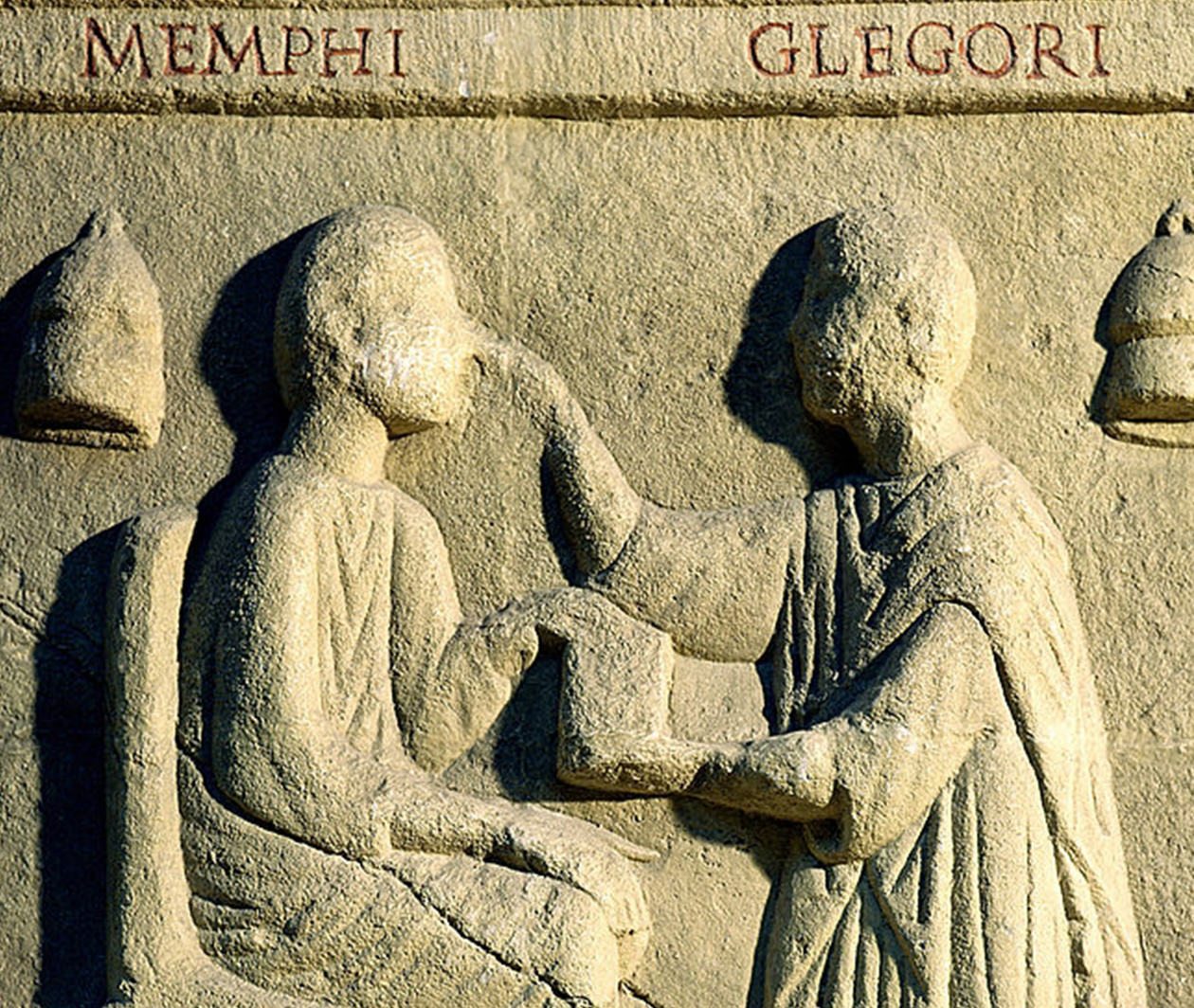Discover what healthcare was like in ancient Greece and the Roman world with this free online course.

Duration
6 weeksWeekly study
3 hours
Health and Wellbeing in the Ancient World
What did being healthy in ancient Rome or Greece look like? How can we tell what wellbeing meant in ancient times? This course will help you investigate the health of people in ancient Greece and Rome, using both literary and archaeological evidence to uncover details of real life in ancient societies.
Explore ancient life through primary evidence
This course is designed to challenge simplistic approaches which apply modern distinctions to the ancient world. Instead you’ll go back to the start and look at the primary evidence on which all modern assumptions are based. You’ll examine different objects closely, learning what each item can tell us about life in ancient times.
Understand ancient theories by examining the body
On the course we’ll divide the body up into organs and systems, using each as a starting point to explore ancient theories of the structure and function of the human body, and other aspects of ancient life.
We’ll discover ancient Greece and Rome in full, from the public to the personal, and from army and urban life to the lived experience of women and children. Using the evidence on the hair and face, the eyes, the digestive system, the organs of reproduction and the feet you’ll explore topics with which our society still wrestles, including the location of the ‘self’; the relationship between mind and body; identity; food and drink; sanitation; sexuality, ageing and gender.
Improve your critical and analytical abilities
Through the course you’ll develop some of the skills needed in the study of classics and history including:
- Improving your ability to critically analyse primary sources
- Learning to analyse complex problems based on fragmentary evidence
- Developing your ability to engage with contemporary interpretations and scholarly debates.
For a taste of what will be covered in this course, read this post from Lead Educator, Helen King.
What topics will you cover?
- What is health ? Ancient and modern perspectives on health and disease
- Medicine, religion and magic
- Using online resources
- Vision: theories of sight, approaches to eye disease, including drugs and surgery
- Body modifications
- Diet and digestion
- Human waste: using evidence from toilets and sewers
- Conception and birth: theories and practices
- Ideal bodies and disabled bodies
- The health of the army: recruiting and treating soldiers
When would you like to start?
Start straight away and join a global classroom of learners. If the course hasn’t started yet you’ll see the future date listed below.
Available now
Learning on this course
On every step of the course you can meet other learners, share your ideas and join in with active discussions in the comments.
What will you achieve?
By the end of the course, you‘ll be able to...
- Develop confidence in exploring the variety of fields that constitute classical studies.
- Explore and become familiar with open-access resources for classical studies.
- Develop the ability to critically analyse primary sources.
- Apply and gain skills in analysing complex problems based on fragmentary evidence.
- Engage with contemporary interpretations and scholarly debates.
Who is the course for?
There are no special requirements for this course, but an interest in the ancient world or classics might be useful.
Who will you learn with?
I'm Professor Emerita in Classical Studies at The Open University. My main research interests are in the history of medicine and I'm passionate about extending access to learning for everyone.
Who developed the course?
Established
1969Location
Milton Keynes, UKWorld ranking
Top 510Source: Times Higher Education World University Rankings 2020
Learning on FutureLearn
Your learning, your rules
- Courses are split into weeks, activities, and steps to help you keep track of your learning
- Learn through a mix of bite-sized videos, long- and short-form articles, audio, and practical activities
- Stay motivated by using the Progress page to keep track of your step completion and assessment scores
Join a global classroom
- Experience the power of social learning, and get inspired by an international network of learners
- Share ideas with your peers and course educators on every step of the course
- Join the conversation by reading, @ing, liking, bookmarking, and replying to comments from others
Map your progress
- As you work through the course, use notifications and the Progress page to guide your learning
- Whenever you’re ready, mark each step as complete, you’re in control
- Complete 90% of course steps and all of the assessments to earn your certificate
Want to know more about learning on FutureLearn? Using FutureLearn
Learner reviews
Learner reviews cannot be loaded due to your cookie settings. Please and refresh the page to view this content.
Get a taste of this course
Find out what this course is like by previewing some of the course steps before you join:
Do you know someone who'd love this course? Tell them about it...
You can use the hashtag #FLHealthAncientWorld to talk about this course on social media.
More courses you might like
Learners who joined this course have also enjoyed these courses.
Browse more in Psychology & Mental Health and History
